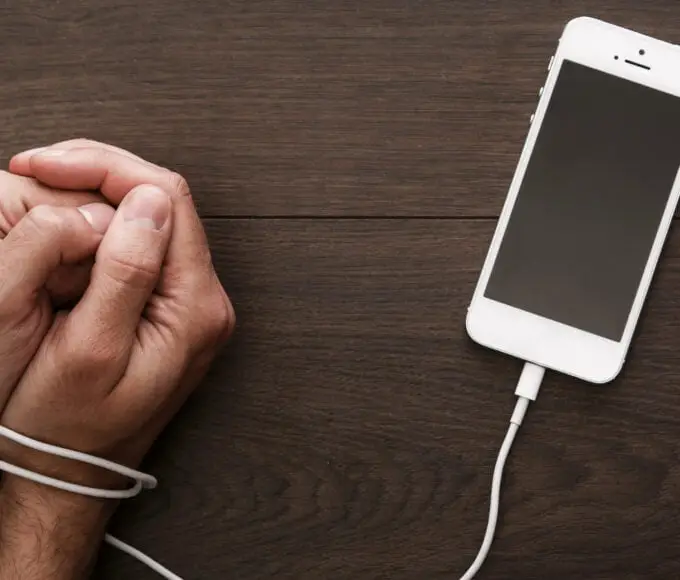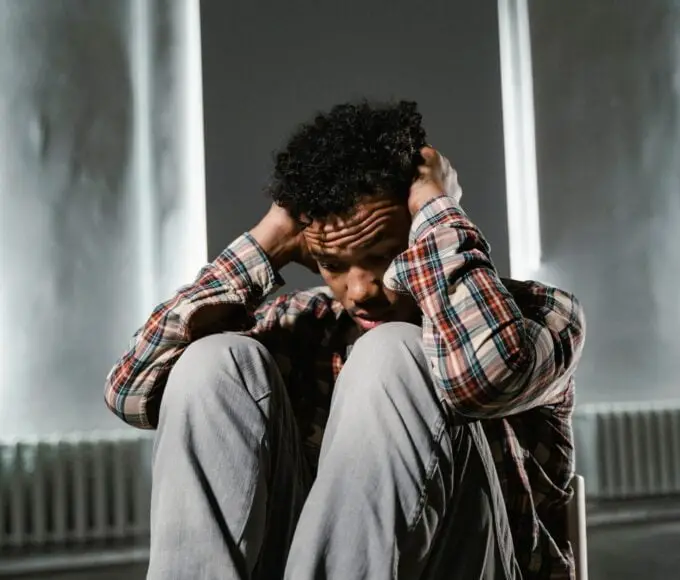Abstract: Enochlophobia, commonly known as the fear of crowds, can be an overwhelming and distressing experience for many individuals. In this comprehensive blog post, we will delve into the various aspects of this phobia, its causes, symptoms, and potential treatments. By breaking down the information into ten main s, each with four subs, and seven points per sub, we aim to provide a reader-friendly, SEO-optimized guide that sheds light on this challenging phobia.
What is Enochlophobia(Fear of Crowds)?
Enochlophobia, commonly known as the fear of crowds, is a specific phobia characterized by an intense and irrational dread of being in crowded places or large gatherings. Individuals with Enochlophobia often experience overwhelming anxiety, physical discomfort, and a strong urge to escape from such situations. This phobia can significantly impact their social interactions, professional life, and overall well-being, leading to avoidance behaviors and isolation.
Prevalence of Enochlophobia: Enochlophobia is more common than one might think, affecting a considerable number of individuals worldwide. While the prevalence may vary across different populations, research suggests that a significant portion of the global population experiences some level of discomfort or fear in crowded settings. Understanding the prevalence of Enochlophobia can help raise awareness and promote support for those facing this challenge.
Historical Perspective on Crowd Fear: The fear of crowds has been present throughout history, with various accounts and documentation of people experiencing discomfort in densely populated areas. Historical events, such as crowd-related accidents or incidents, have also contributed to the development and reinforcement of this fear. By exploring the historical perspective, we can gain insights into the origins of Enochlophobia and its impact on society over time.
Coping with the Fear of Crowds: Coping with Enochlophobia is essential for individuals seeking to regain control over their lives. Various strategies can help manage and overcome this fear. Gradual exposure therapy, where individuals are gradually exposed to increasingly crowded environments, can desensitize them to the fear. Cognitive behavioral techniques can help modify negative thought patterns associated with crowded places. Breathing and relaxation exercises can be useful in reducing anxiety during challenging situations. By implementing coping mechanisms, individuals can find the courage to face their fears and embrace a more fulfilling life free from the constraints of Enochlophobia.
Causes of Enochlophobia(Fear of Crowds)
2.1 Childhood Trauma and Crowd Fear: Childhood trauma, such as experiencing a distressing event in a crowded place, can be a significant factor contributing to the development of Enochlophobia. Traumatic experiences can imprint fear-related memories and associations, leading to a heightened fear response when faced with similar crowded situations in the future.
2.2 Genetic Predisposition and Phobias: Research suggests that genetics can play a role in the development of phobias, including Enochlophobia. Individuals with a family history of phobias or anxiety disorders may have a higher predisposition to developing this fear of crowds due to inherited genetic factors.
2.3 Environmental Triggers of Enochlophobia: Environmental triggers, such as witnessing or experiencing crowd-related accidents or incidents, can contribute to the development of Enochlophobia. Media portrayals of crowded places in distressing situations can also reinforce and intensify this fear.
2.4 Social Anxiety and Enochlophobia: Social anxiety, a condition characterized by intense fear of social interactions and judgment, can be closely linked to Enochlophobia. For some individuals, the fear of crowds may stem from concerns about being observed, judged, or embarrassed in public settings.
Understanding the underlying causes of Enochlophobia can be crucial in developing effective treatment approaches and providing individuals with the support they need to overcome this challenging phobia. Addressing these causes through therapy and coping strategies can empower individuals to confront their fear of crowds and lead a more fulfilling life.
Symptoms of Enochlophobia(Fear of Crowds)
3.1 Physical Signs of Crowd Fear: Enochlophobia can trigger various physical symptoms when individuals find themselves in crowded places. These may include rapid heartbeat, shortness of breath, sweating, trembling, dizziness, nausea, and even panic attacks. The body’s fight-or-flight response is activated, causing the person to experience extreme discomfort and distress.
3.2 Emotional Reactions to Crowded Places: Emotionally, individuals with Enochlophobia may experience overwhelming fear, anxiety, and a sense of helplessness when confronted with crowded environments. They may feel a loss of control and an intense urge to escape the situation, leading to emotional exhaustion and heightened stress levels.
3.3 Cognitive Effects of Enochlophobia: Enochlophobia can significantly impact a person’s thought processes. When faced with crowds, individuals may experience persistent negative thoughts and catastrophic thinking, anticipating worst-case scenarios and potential dangers. This cognitive distortion can reinforce their fear and lead to a cycle of anxiety in crowded situations.
3.4 Avoidance Behaviors and Enochlophobia: In an attempt to cope with their fear of crowds, individuals may resort to avoidance behaviors. They might avoid public events, crowded places, or gatherings altogether, which can limit their social interactions and opportunities for personal growth. Avoidance may provide temporary relief but can exacerbate the fear of crowds in the long run.
Recognizing these symptoms is crucial for understanding the impact of Enochlophobia on an individual’s life and well-being. By addressing these symptoms through therapy and self-help strategies, individuals can begin to manage their fear of crowds and work towards leading a more fulfilling and less fear-driven life.
Impact of Enochlophobia(Fear of Crowds) on Daily Life
4.1 How Enochlophobia Affects Social Interactions: Enochlophobia can have a profound impact on an individual’s social life. Those with this fear of crowds may avoid social gatherings, parties, and public events, leading to feelings of isolation and loneliness. It can hinder the development of new friendships and strain existing relationships, as they may decline invitations or find it challenging to engage in group activities.
4.2 Challenges in Professional Settings: In professional settings, Enochlophobia can pose significant challenges. Work-related events, conferences, or team meetings held in crowded places can cause distress and anxiety. Individuals with this phobia might struggle to participate fully in such situations, hindering their professional growth and potential networking opportunities.
4.3 Enochlophobia’s Impact on Mental Health: The persistent fear of crowds can take a toll on an individual’s mental health. Constant anxiety and stress can lead to increased feelings of helplessness and low self-esteem. Over time, untreated Enochlophobia may lead to the development of other mental health issues, such as depression or generalized anxiety disorder.
4.4 Relationship Strain and Enochlophobia: Enochlophobia can strain relationships with family, friends, or romantic partners. Loved ones may find it challenging to understand the phobia’s impact on the individual’s behavior and decisions. Frustration and misunderstanding may arise, making it crucial to foster open communication and empathy to maintain healthy relationships.
Understanding the far-reaching impact of Enochlophobia on daily life is essential in recognizing the need for intervention and support. By addressing these challenges through therapy and coping strategies, individuals can work towards managing their fear of crowds and improve their overall quality of life and well-being.
Overcoming Enochlophobia(Fear of Crowds): Self-Help Strategies
5.1 Gradual Exposure Therapy: Gradual exposure therapy is an effective self-help strategy for managing Enochlophobia. It involves gradually exposing oneself to increasingly crowded situations in a controlled and supportive manner. By repeatedly facing the fear and learning that it is manageable, individuals can desensitize themselves to the anxiety triggered by crowds.
5.2 Cognitive Behavioral Techniques: Cognitive behavioral techniques can be valuable in challenging and modifying negative thought patterns associated with crowded places. Through self-awareness and cognitive restructuring, individuals can replace irrational thoughts with more realistic and positive ones, reducing the fear response in crowded environments.
5.3 Breathing and Relaxation Exercises: Practicing breathing and relaxation exercises can help individuals with Enochlophobia manage their physical symptoms of anxiety. Deep breathing, progressive muscle relaxation, and mindfulness techniques can promote a sense of calm and control during challenging situations, making crowded places less daunting.
5.4 Positive Visualization and Affirmations: Positive visualization and affirmations can be empowering tools in overcoming Enochlophobia. By visualizing successful experiences in crowded settings and repeating positive affirmations, individuals can build confidence and reinforce a positive mindset when facing their fear of crowds.
These self-help strategies can be implemented with determination and consistency to gradually overcome Enochlophobia. However, it is essential to remember that seeking professional guidance and support is beneficial, as therapists can provide personalized advice and guidance for the best possible outcome in managing the fear of crowds.
Seeking Professional Help
6.1 The Role of Therapists in Treating Enochlophobia
Therapists play a crucial role in treating Enochlophobia. They provide a safe and non-judgmental space for individuals to explore their fears and challenges. Through various therapeutic approaches like cognitive-behavioral therapy (CBT) and exposure therapy, therapists can help individuals understand the root causes of their fear and develop effective coping strategies.
6.2 Medication Options for Crowd Fear
In some cases, medication may be prescribed to manage the symptoms of Enochlophobia. Anti-anxiety medications or beta-blockers can help individuals reduce their anxiety levels and physical symptoms when facing crowded situations. Medication should always be prescribed and monitored by a qualified healthcare professional.
6.3 Support Groups and Community Resources
Support groups and community resources can be valuable sources of encouragement and understanding for individuals with Enochlophobia. Connecting with others who share similar experiences can foster a sense of belonging and reduce feelings of isolation. These groups often offer a platform for sharing coping strategies and success stories.
6.4 Online Therapy for Enochlophobia
Online therapy, also known as teletherapy or e-counseling, offers a convenient and accessible option for individuals seeking professional help for Enochlophobia. Through secure video conferencing or messaging platforms, individuals can connect with licensed therapists from the comfort of their homes, making mental health support more flexible and available.
Seeking professional help for Enochlophobia is a crucial step towards effective treatment and recovery. Therapists, support groups, and community resources can provide invaluable guidance and encouragement, empowering individuals to face their fear of crowds and work towards leading a more fulfilling and anxiety-free life.
Coping with Enochlophobia in Daily Life
7.1 Planning Ahead for Crowded Events
Planning ahead can be a helpful strategy for individuals with Enochlophobia when facing crowded events. Arriving early to avoid large crowds, choosing less crowded times to visit places, and having an exit strategy can provide a sense of control and reduce anxiety.
7.2 Using Mindfulness Techniques in Crowded Places
Practicing mindfulness techniques in crowded places can help individuals stay present and centered. Focusing on breathing and grounding exercises can redirect attention away from fear and anxiety, promoting a calmer state of mind.
7.3 Enlisting Support from Loved Ones
Enlisting the support of loved ones can make coping with Enochlophobia easier. Sharing feelings and fears with trusted individuals can foster understanding and empathy, leading to more meaningful support during challenging situations.
7.4 Focusing on Personal Growth and Resilience
Focusing on personal growth and resilience can empower individuals to overcome Enochlophobia. Celebrating small victories and acknowledging progress can boost confidence and motivation, making the journey towards managing fear more rewarding.
By incorporating these coping strategies into daily life, individuals can gradually build their confidence in handling crowded situations and develop resilience in the face of their fear. Remember, progress may take time, but with perseverance and the right support, managing Enochlophobia is achievable.
Breaking the Stigma
8.1 The Importance of Raising Awareness
Raising awareness about Enochlophobia is crucial in breaking the stigma surrounding mental health issues. By increasing understanding and knowledge about this fear of crowds, we can foster empathy and support for individuals facing Enochlophobia and other phobias.
8.2 Empathy and Understanding for Enochlophobia
Developing empathy and understanding for those with Enochlophobia can create a more compassionate and inclusive society. Recognizing that phobias are genuine and challenging experiences can encourage individuals to seek help without fear of judgment.
8.3 Encouraging Open Dialogue About Phobias
Promoting open dialogue about phobias can create a safe space for individuals to share their experiences and seek support. By discussing mental health openly, we can dismantle misconceptions and foster a more supportive environment.
8.4 Shifting Perspectives on Mental Health
Shifting perspectives on mental health involves recognizing that mental health challenges, including Enochlophobia, are common and deserve equal attention as physical health issues. By eliminating stereotypes and discrimination, we can encourage individuals to seek help and treatment without shame.
Breaking the stigma surrounding Enochlophobia and mental health, in general, is a collective effort. By advocating for awareness, empathy, open dialogue, and positive attitudes towards mental health, we can create a more understanding and accepting society for everyone.
Real-Life Stories of Triumph
9.1 Overcoming Enochlophobia – A Personal Journey
Sharing personal journeys of individuals who have successfully overcome Enochlophobia can inspire hope and motivation. These stories highlight the challenges faced, the strategies implemented, and the triumphs achieved in managing the fear of crowds.
9.2 Inspiring Stories of Recovery from Crowd Fear
Collecting and sharing inspiring stories of recovery from crowd fear can provide encouragement for those currently struggling with Enochlophobia. These narratives showcase the resilience and determination of individuals in reclaiming their lives from the grips of fear.
9.3 Strategies That Worked for Individuals with Enochlophobia
Understanding the strategies that have worked for individuals with Enochlophobia can offer practical insights and ideas for others seeking to manage their fear of crowds. Learning from real-life experiences can provide valuable guidance in developing effective coping mechanisms.
9.4 The Power of Resilience in Phobia Management
Highlighting the importance of resilience in phobia management can empower individuals to navigate the challenges of Enochlophobia. Realizing that setbacks are a natural part of the journey can encourage persistence and determination in overcoming crowd fear.
These real-life stories of triumph can instill hope, foster determination, and provide a sense of solidarity for individuals facing Enochlophobia. By celebrating the successes of others, we can create a supportive and encouraging community where individuals can draw strength and inspiration on their own path to overcoming their fear of crowds.
Moving Forward with Confidence
10.1 Embracing Progress, Not Perfection
Moving forward with confidence involves acknowledging that progress in managing Enochlophobia is a journey, and it’s okay to have ups and downs. Embracing small steps towards improvement can build confidence and motivation in the process.
10.2 Celebrating Small Victories in Enochlophobia Treatment
Celebrating each small victory in Enochlophobia treatment is essential for boosting self-esteem and perseverance. Recognizing and acknowledging achievements, no matter how minor, can provide a sense of accomplishment and encourage continued effort.
10.3 Long-Term Strategies for Maintaining Progress
Developing long-term strategies for maintaining progress is crucial in managing Enochlophobia over time. Building resilience, consistently practicing coping techniques, and seeking ongoing support are key components in sustaining the progress made.
10.4 Spreading Awareness and Support for Enochlophobia
Moving forward with confidence also involves spreading awareness and support for Enochlophobia. By sharing knowledge, experiences, and resources, we can foster empathy and understanding in society, creating a more compassionate environment for those facing this fear.
As individuals move forward with confidence in managing Enochlophobia, remember that seeking professional help and support from loved ones are essential components of this journey. By taking each step with determination and self-compassion, individuals can work towards a life free from the constraints of fear and embrace a future filled with possibilities.
Conclusion
Enochlophobia, or the fear of crowds, is a challenging phobia that affects numerous individuals worldwide. Through this comprehensive blog post, we have explored the various aspects of this fear, including its causes, symptoms, and impact on daily life. We have also provided valuable self-help strategies and highlighted the importance of seeking professional support. By understanding and empathizing with those experiencing this phobia, we can break the stigma surrounding mental health and foster a supportive environment for healing and growth. With determination, resilience, and a willingness to seek help, individuals can overcome enochlophobia and embrace a life free from the constraints of fear.
Last worded from Author
Dear readers, I hope this blog post has shed light on the complex world of Enochlophobia and provided you with valuable insights into the fear of crowds. Remember, you are not alone in this journey. Understanding and overcoming this phobia takes courage, patience, and support.
Know that seeking help is not a sign of weakness, but a step towards empowerment and growth. Embrace your progress, no matter how small, and celebrate every triumph along the way. Together, we can break the stigma surrounding mental health and create a compassionate community where individuals can thrive. Believe in yourself, take each step with determination, and know that healing is possible. You have the strength to conquer your fears and embrace a life of freedom and happiness.
FAQs
Enochlophobia is the fear of crowds. It is an intense and irrational anxiety that arises when individuals find themselves in crowded places or large gatherings.
Symptoms of Enochlophobia can include rapid heartbeat, shortness of breath, sweating, trembling, feelings of panic, and an overwhelming urge to escape crowded situations.
Yes, Enochlophobia can be effectively treated. Various approaches, such as gradual exposure therapy, cognitive-behavioral techniques, and medication, can help individuals manage and overcome their fear of crowds.
Seeking professional support is highly recommended for managing Enochlophobia. Trained therapists can provide personalized guidance, support, and evidence-based treatments to address the specific challenges of each individual’s phobia. Professional help ensures a comprehensive approach to healing and recovery.
Reference
- Fear of Crowds (Enochlophobia): Causes and Treatment – Verywell Health. https://www.verywellhealth.com/fear-of-crowds-enochlophobia-5210651.
- Enochlophobia: Fear of Crowds and How to Manage It – Healthline. https://www.healthline.com/health/mental-health/enochlophobia.
- Understanding Enochlophobia or the Fear of Crowds – Verywell Mind. https://www.verywellmind.com/an-overview-of-enochlophobia-4782189.
Read Also







